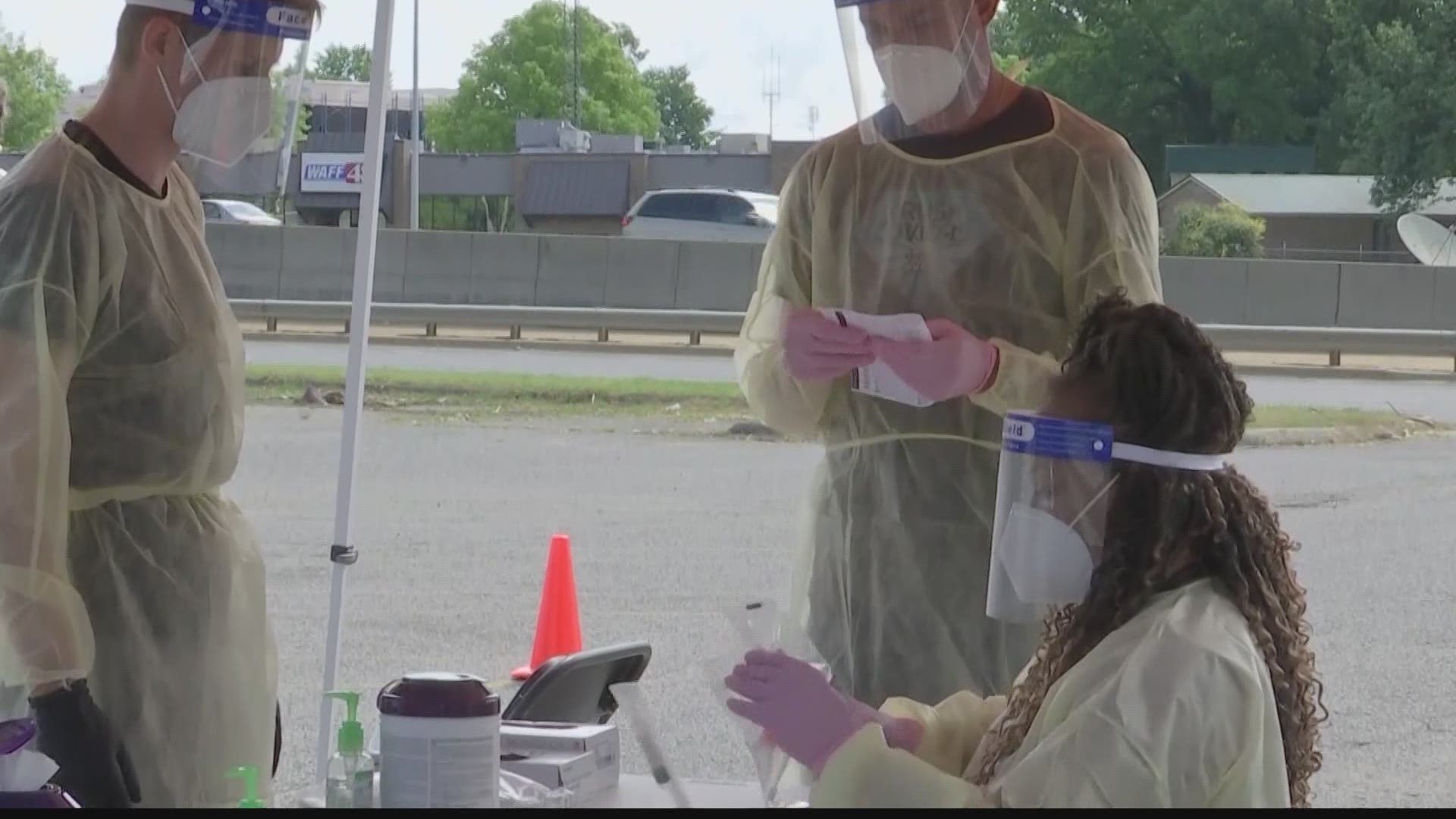ALABAMA, USA — Experts believe we could be on the other side of the pandemic by late spring.
New studies show the U.S. could reach herd immunity by May or June. This comes as more cases of the more contagious UK variant of COVID-19 are being reported in Alabama.
Dr. Karen Landers with the Alabama Department of Public Health said, "While the variant may in and of itself not be any more deadly, just by more people getting infected, it could be more deadly."
The South African variant, not yet reported in Alabama, raises fears that the current vaccines will not be as effective against it.
Officials say variants do have the power to set us back, but viruses mutating isn't new. They say it happens all the time with the flu.
Dr. Suzanne Judd, an epidemiologist at the UAB School of Public Health, said, "The CDC has something called the flu net, and basically they are surveying all the time to determine what types of influenza are circulating in the community, was the vaccine that was created the proper vaccine, do we need a booster?"
Experts say just because a new variant pops up doesn't necessarily mean the immunity we have won't work.
“It really depends on how the virus mutates. There are some mutations that will be completely covered by the immune response the body has already developed,” said Dr. Judd. “There are other mutations that could escape the immune system and require a vaccine booster or actually lead to re infection."
“We are already in surveillance for sequencing with CDC, and we're also doing some sequencing with some laboratories here in Alabama,” said Dr. Landers. “Then focus on clusters, focus on re infection and focus on any vaccine breakthrough."
New studies show a large percent of people have antibodies but never tested positive, so it could be possible we have already reached a very broad immunity.
Dr. Landers says although COVID numbers are trending in the right direction, people must stay vigilant.
“The tired message but still the very, very important message of mask, social distancing, and good hand washing and good hand sanitizing. I mean, this is really the only way we have to reduce transmission,” said Dr. Landers.
With natural immunity, vaccinations are a key part to reaching herd immunity.
On Thursday, State Health Officer Dr. Scott Harris said Alabama is now getting about 90,000 to 100,000 doses of the COVID vaccine a week, but with 1.5 million people in the state eligible, there's still not enough to go around.
Dr. Harris says the current allocation does not include potential doses of the Johnson and Johnson vaccine, which could be approved for emergency use authorization soon.
“We do know the J & J vaccine is not going to be repositioned in states ready to go the way that the Pfizer and Moderna products were,” said Dr. Harris. “If you remember when FDA granted the authorization on those, they went ahead and shipped vaccine to states already while we were still waiting for ACIP to tell us how to use them. That's not going to be the case with J & J."
Dr. Harris says they do not know yet how many doses of the Johnson and Johnson vaccine will be allocated to Alabama once it is approved.
WATCH: UK COVID variant identified in Madison County

